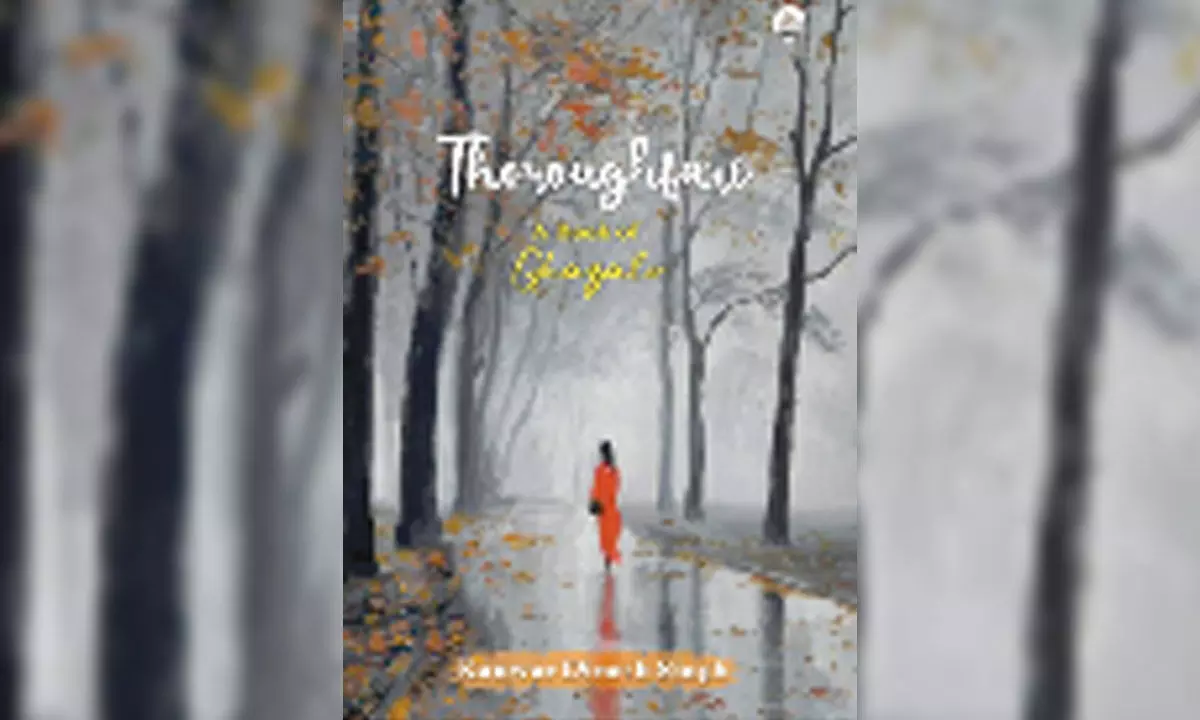Voicing the angst of a modern lifestyle

Voicing the angst of a modern lifestyle
As a well-known Shimla-based poet, storyteller, and critic, Kanwar Dinesh Singh is a prominent signature of contemporary Indian English poetry
As a well-known Shimla-based poet, storyteller, and critic, Kanwar Dinesh Singh is a prominent signature of contemporary Indian English poetry. A recipient of the prestigious Himachal Pradesh Sahitya Akademi award, he has published several volumes of poetry, haiku, micro-fiction, and books in literary criticism. His twelfth volume of poems, Thoroughfare: A Book of Ghazals, illustrates his distinctive poetic talent.
It is no small feat to write a ghazal in English with equal vim and vigour as in Urdu or Persian. Still, Singh has presented several experiments within this genre with great ingenuity and aesthetic concern. Realising the flair and finesse of ghazal, he has enriched these compositions by deftly using figures of speech, such as metaphors and irony, and eloquently expressing the feelings of his heart and the thoughts rising in his mind. In addition, his use of rhyme, refrain, and alliteration help heighten the musical effect of these ghazals.
Although kafia and radif are considered to be the most important ingredients in an Urdu ghazal, it is strenuous to use them with the same efficiency as English ghazals. Only a versifier can understand this difficulty. Accordingly, Singh has mostly used radif, but the presence of kafia is also perceivable in some couplets:
"Your hazel eyes heartlessly commandeer the calm of my heart; In sheer bewilderment, here and there, involuntarily I dart." (28)
"Oft we speak of ourselves for what we are truly not; While we're icy within, how highly we feign to be hot!" (18) Nonetheless, a continuous inner rhythm is predominant in the structure of Singh's ghazals, which serves to help engage the reader. In addition, the depth of feelings and the gravity of thoughts make these ghazals appealing to the heart. The main theme of a ghazal has always been the conversation between a lover and their beloved. Singh's ghazals avidly depict the warmth of loving relationships between men and women. The following couplet from the ghazal, "With Your Eyelines," effectively captures the passionate intensity of a lover's heart: "Your dark gaze can be a good fun and sport, dear, / Believe, for me of life and death it is a grave matter." (33) Another couplet from "I'm Bemused" beautifully shows how drowned a lover can feel in their beloved's eyes: "Your labyrinthine gaze drags me into their stone maze, / I'm bemused, my Love, where's the end, where the start?" (28)
The emotion of love in these ghazals is not only of a material or physical level but can also be seen in the form of a deep faith in God, as is manifested in this couplet from "A Prevailing Force":
"He's invisible, He's detached, He's disinterested, He's silent; / It seems so, yet I bow to the invincible God, without a comment." (34)
The poet's religious outlook is not solely confined to rites and rituals. Rather, he chooses the path of introspection and meditative self-realisation to be worthy of divine blessing, as pronounced in these lines from the same ghazal:
"No scripture can ever show up His true Nature, until we introspect, / Hence, Dinesh rummages his own inner recesses for enlightenment." (34)
In many ghazals, the poet is seen expressing regret for the prevailing egotism and indifference in today's society. The apathetic attitude of the people around him perturbs the poet's heart. This couplet from "Swayed by Self-Interest" clearly shows how the self-centred mindset hollows out modern humanity: "Everyone and everything in this world is swayed by self-interest; / What they call altruism is only give-and-take or barter at its best." (30)
Similarly, another couplet from "Empty Hands" voices the arrogance of people who consider themselves to be well-off:
"In sheer self-conceit, they browbeat others so badly; / For self-centred intent on others' spines they ride." (26)
The poet strongly believes that being highly self-absorbed is not conducive to the future of humanity. "In Pride" quite sarcastically voices the poet's concern for the sheer egocentricity of man, for which even God is turning away from him:
"God's now only in opaque stones reside, / From human apathy, they perpetually hide." (48).










